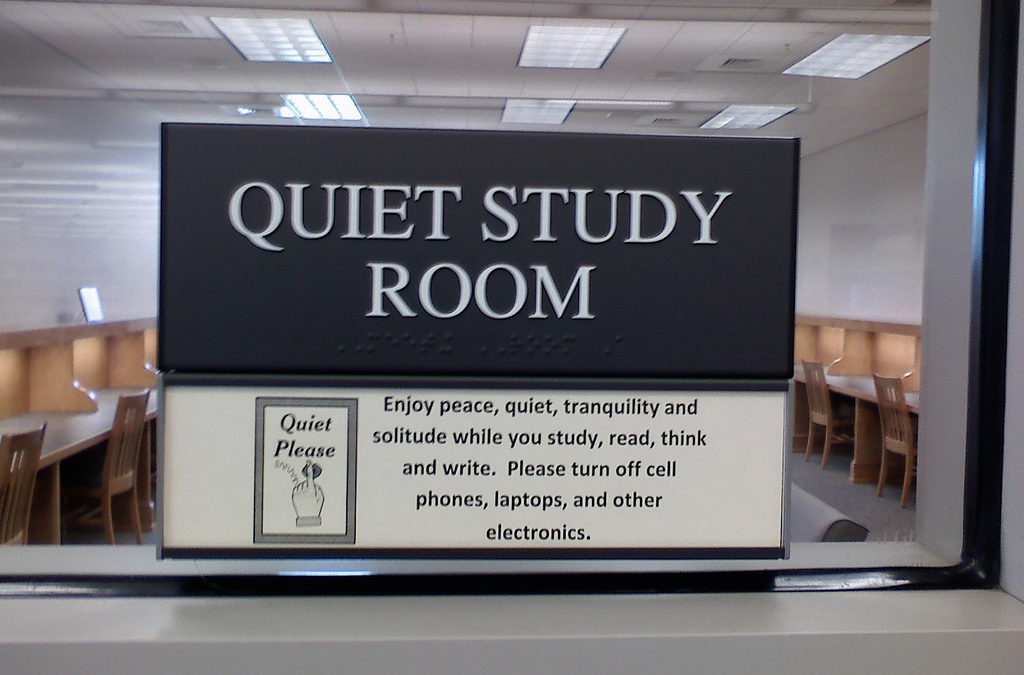Offices can be one of the most difficult places to get work done. Seems counterintuitive, but you know it is true that most offices are dysfunctional.
Jason Fried, the CEO at Basecamp, the Chicago-based software company has several excellent ideas that his company uses to make the workplace a smarter environment and to avoid a dysfunctional office. The Basecamp team wanted to make work, work. He wanted people to work forty hours, so he recreated the work environment to make it more useful, productive and functional.
When asked, many knowledge workers say they would get their best work was done at night, on weekends and not in the office. Many offices are broken and needed fixing. If you go to work to get stuff done, why isn’t that happening?
The following are some of the ways Jason improved his team’s effectiveness.
Library rules
When you walk into a library, everyone knows the rules. If you must talk, uses a quiet voice and don’t disturb others. The Basecamp team wanted to create a quiet work environment so that people can concentrate. Instead of having people work overtime and weekends, what if your 9-5 could be more productive?
By making the workplace quiet like a library, it allows people to function without noise and distractions. Fried started with one Silent Thursday per month. The quiet day was so well-received, they did it every Thursday. Over time, they reframed the workplace to be like a library where everyone talks in a quiet and respectful voice. The office became a place to get work done, not socialize. Interruptions kill productivity.
Wouldn’t you prefer to get your work done in forty hours and not be on call all the time?
Meetings as a last resort
If you can eliminate meetings, the amount of time saved is extraordinary. A typical session can have seven people in it and last for two hours. That can be 14 hours of wasted time. At Basecamp, they try to limit work teams to three people to make scheduling and decision making more efficient. When you trust people, you don’t need everyone to weigh in on decisions. Keep teams small and use meetings only when other communications methods fail. Their leadership team wants people taking initiatives and to move projects forward without everyone in the company weighing in on every decision. Basecamp is an ownership community, where a small group of project owners decides, create and “ship” solutions.
Not Everything is Urgent
Not everything needs an immediate response. Most things can wait. By using text, chat, slack or email, you can manage communications better with a culture that accepts that unless told to respond within the hour, you can react in a day or a few days. When you are clear of some things urgency, it shifts to asynchronous time-frames versus the urgent need of this moment.
At Basecamp, there are times to work in real time but asynchronous is often the better way to work. If you want things discussed and reviewed, they ask people to write up the work. When the receiver can get back to you when they are ready, it tends to make for a more productive work activity. You don’t require that everyone stop and get involved in a group chat to decide. It creates a calmer environment when you don’t have email chains that move along like conveyor belts.
Train Your Clients
When your customers demand answers at 10 PM on a Friday night to normal and everyday issues, you obviously need to set some boundaries. Maybe they aren’t the right customer for you. Perhaps you need to rethink who you want to work with and the toll an unreasonable customer takes on your team. At Basecamp, they don’t want to work with unreasonable clients. They don’t want clients who demands can’t be managed during most business hours. Of course, there is an occasional exception, but when phone calls and meetings on weekends isn’t a rare occurrence but a regular activity, that is the time to fire some customers.
Over Collaboration and Over Communications
Companies are trying so hard to get everyone involved, but the results are that you slow down progress. If you trust people and they have the competencies to do the job, get out of their way. If you are managing properly, you aren’t doing their job too. Maybe you need to approve a project to make sure it fits with your strategy, but to be part of every decision is like pouring molasses on the floor. Actions slow down and things get sticky.
Tools don’t solve these types of office environment problems. These are cultural issues, and the owners need to set the tone. Emergencies need to be well-defined, so not everything is urgent. Adjust the tone at the top and slow down and think harder.
Want to make your office more functional. Be quiet. Eliminate meetings. Learn what’s urgent and don’t have everyone involved in everything.
How functional is your workplace?
Could you use help creating a more effective work environment? I view a company’s culture as part of how you go to market. Happy, productive employees bring more value to customers. Let’s talk. 919 720 0995.

https://www.flickr.com/photos/trucolorsfly/with/2370615311/




